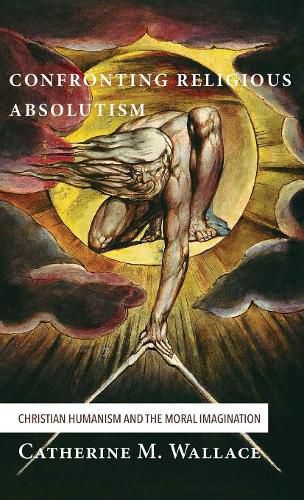Readings Newsletter
Become a Readings Member to make your shopping experience even easier.
Sign in or sign up for free!
You’re not far away from qualifying for FREE standard shipping within Australia
You’ve qualified for FREE standard shipping within Australia
The cart is loading…






This title is printed to order. This book may have been self-published. If so, we cannot guarantee the quality of the content. In the main most books will have gone through the editing process however some may not. We therefore suggest that you be aware of this before ordering this book. If in doubt check either the author or publisher’s details as we are unable to accept any returns unless they are faulty. Please contact us if you have any questions.
Papal infallibility and biblical inerrancy provide the conceptual foundations of theocracy, which is to say religiously-based totalitarianism. These absolutist doctrines emerge for the very first time among the Victorians: they are not ancient beliefs at all. They appear in the 19th century, right alongside secular varieties totalitarian thought, and in response to all the same cultural anxieties. Reactionary religious leaders used these doctrines to oppose scholarly conclusions in geology and evolutionary biology. That much everyone knows. What’s not as well known is the fact that their principal target was Christian-humanist biblical scholarship, an unbroken 500-year tradition of inquiry undertaken primarily by Christian clergy and seminary faculty. The alternative to faith-based totalitarianism is faith based upon the imagination, our most sophisticated cognitive skill. Faith rooted in the moral imagination does not depend upon abject deference to an array of rigid doctrines and improbable claims. Wallace contends that faith is best understood as a creative process, and religion is best understood as a multi-media art (and originally the Mother of all arts). The arts convince, they do not command. They persuade, they do not prove. The arts provide humane resources whereby we grapple with life’s deepest mysteries. Symbolism, like quantum mathematics, is a tool for grappling with inescapable paradox at the heart of reality. It is an ancient strategy for articulating what we discover at the elusive mind-body interface.
$9.00 standard shipping within Australia
FREE standard shipping within Australia for orders over $100.00
Express & International shipping calculated at checkout
This title is printed to order. This book may have been self-published. If so, we cannot guarantee the quality of the content. In the main most books will have gone through the editing process however some may not. We therefore suggest that you be aware of this before ordering this book. If in doubt check either the author or publisher’s details as we are unable to accept any returns unless they are faulty. Please contact us if you have any questions.
Papal infallibility and biblical inerrancy provide the conceptual foundations of theocracy, which is to say religiously-based totalitarianism. These absolutist doctrines emerge for the very first time among the Victorians: they are not ancient beliefs at all. They appear in the 19th century, right alongside secular varieties totalitarian thought, and in response to all the same cultural anxieties. Reactionary religious leaders used these doctrines to oppose scholarly conclusions in geology and evolutionary biology. That much everyone knows. What’s not as well known is the fact that their principal target was Christian-humanist biblical scholarship, an unbroken 500-year tradition of inquiry undertaken primarily by Christian clergy and seminary faculty. The alternative to faith-based totalitarianism is faith based upon the imagination, our most sophisticated cognitive skill. Faith rooted in the moral imagination does not depend upon abject deference to an array of rigid doctrines and improbable claims. Wallace contends that faith is best understood as a creative process, and religion is best understood as a multi-media art (and originally the Mother of all arts). The arts convince, they do not command. They persuade, they do not prove. The arts provide humane resources whereby we grapple with life’s deepest mysteries. Symbolism, like quantum mathematics, is a tool for grappling with inescapable paradox at the heart of reality. It is an ancient strategy for articulating what we discover at the elusive mind-body interface.